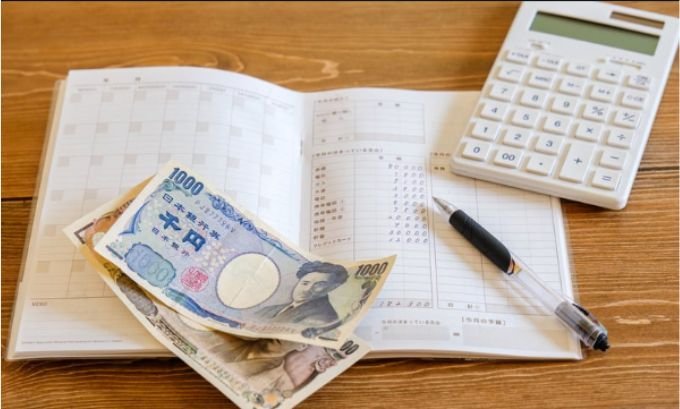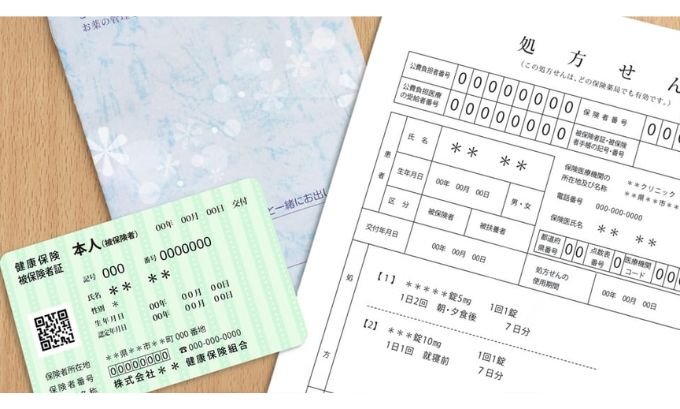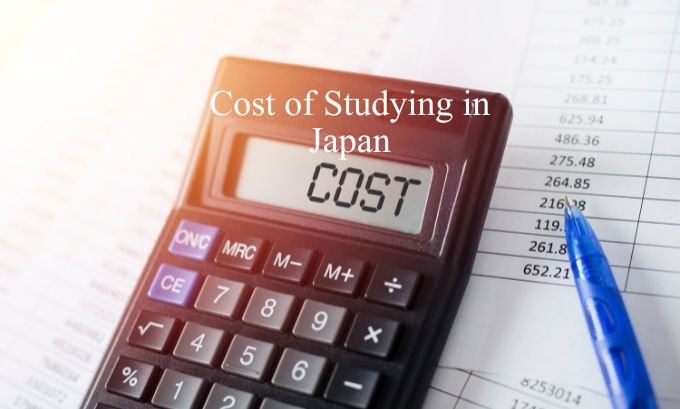Thinking about studying abroad in the Land of the Rising Sun? It’s an incredible goal, but the financial side can feel overwhelming. The total cost of studying in Japan can range from approximately $10,000 to over $30,000 per year, depending on your university, city, and lifestyle. This guide breaks down every expense, from tuition to tempura, to help you plan your adventure with confidence.
Table of Contents
Why Study Abroad in Japan?
Choosing to Study Abroad in Japan offers more than just a degree; it’s an investment in a unique life experience. Students gain access to a world-class education while immersing themselves in a culture that masterfully blends ancient tradition with futuristic innovation. From the bustling energy of Tokyo to the serene temples of Kyoto, Japan provides a backdrop for profound personal and academic growth.
The benefits are clear. You’ll develop global perspectives, learn resilience, and maybe even pick up a new language. The experience of navigating a different society, making international friends, and exploring breathtaking landscapes builds skills that employers value. It’s an opportunity to step outside your comfort zone and return with a richer understanding of the world and your place in it.
A Look at Top Japanese Universities
Japan is home to some of the world’s most prestigious academic institutions. Whether you are pursuing a degree in engineering, humanities, or arts, Japanese Universities are known for their rigorous academics and groundbreaking research. Many of these universities now offer programs fully taught in English, making them more accessible than ever for international students.

Leading Public and Private Institutions
Here are a few of the top-ranking universities that attract students from across the globe:
- The University of Tokyo (Todai): Consistently ranked as the top university in Japan and one of the best in Asia, Todai is a leader in research and innovation across numerous fields.
- Kyoto University: Known for its liberal and academic atmosphere, Kyoto University has produced numerous Nobel laureates. It offers a strong focus on research-led education.
- Osaka University: A leading research institution, particularly in the fields of science, technology, and medicine. It is located in a vibrant, friendly city known for its amazing food scene.
- Waseda University: A prestigious private university in Tokyo, Waseda is renowned for its humanities and social sciences programs and has a large international student body.
- Keio University: As Japan’s oldest institution of higher learning, Keio is another top-tier private university with a strong reputation in economics, law, and medicine.
Enrolling in one of these institutions means you’ll be learning from experts and contributing to a legacy of academic excellence.
Understanding Tuition Fees in Japan
A major component of the cost of studying in Japan is tuition. The good news is that Tuition Fees in Japan are often more affordable than in countries like the United States, the UK, or Australia. Costs vary significantly between public and private universities and the type of program you choose.
Breakdown of University Tuition Costs
The tuition fee structure is generally straightforward. In addition to tuition, universities typically charge a one-time admission fee and an examination fee.
| University Type | Average Annual Tuition (USD) | Average Admission Fee (USD) |
|---|---|---|
| National/Public Universities | $4,500 – $5,500 | ~$2,400 |
| Local Public Universities | $4,600 – $6,000 | ~$3,300 |
| Private Universities (Non-Medical) | $7,000 – $12,000+ | ~$2,000+ |
| Private Universities (Medical/Dental) | $20,000 – $40,000+ | ~$15,000+ |
Note: These are estimates. Fees can vary by university and program. Medical, dental, and pharmaceutical programs are significantly more expensive.
How Your Enrollment Method Affects Cost
- Direct Enrollment: Applying directly to a Japanese university is the most cost-effective method. You pay the standard international student tuition rate set by the institution. This path requires more independent work, as you’ll handle the application, visa, and housing yourself.
- Third-Party Providers: Companies like CIEE, IES Abroad, and TEAN offer comprehensive study abroad packages. While more expensive (often $15,000-$25,000 per semester), these programs include tuition, housing, visa support, on-site staff, and cultural excursions. This is a great option for students who want a higher level of support.
- University Exchange Programs: If your home university has a partnership with a Japanese university, you can often study in Japan while paying your regular home tuition. This is usually one of the most affordable ways to experience a semester or year abroad.
Budgeting for Living Expenses in Japan
Beyond tuition, your daily Living Expenses in Japan will make up a large part of your budget. Your spending will depend heavily on the city you live in—Tokyo and Osaka are more expensive than smaller cities like Fukuoka or Sapporo—and your personal lifestyle.

The Japanese government estimates that the average monthly living cost for an international student is around ¥138,000 (approx. $930 USD), but this can be higher or lower.
A Student’s Monthly Budget in a Major City
Here is an estimated monthly budget for a student living in a city like Tokyo or Kyoto:
- Accommodation (Shared Apartment/Dorm): $400 – $700
- Food (Groceries & Occasional Dining): $200 – $350
- Transportation (Monthly Pass): $40 – $70
- Utilities (Gas, Electric, Water, Internet): $60 – $100
- Personal Expenses (Toiletries, entertainment, etc.): $100 – $200
- Total Estimated Monthly Cost: $800 – $1,420 USD
A Personal Look: My First Month’s Budget in Kyoto
When I first moved to Kyoto for a language program, I was determined to stick to a tight budget. My goal was to understand the real cost of studying in Japan. Here’s a look at my actual expenses from that initial month, which highlights the importance of planning.
Scenario: I chose a shared house (a common option for students) about a 20-minute bike ride from my school. I decided against a transit pass initially to save money, relying on my bicycle for daily commutes.
- Rent: ¥55,000 (~$370). This included utilities, which was a great deal.
- Groceries: ¥28,000 (~$190). I shopped at local supermarkets like Gyomu Super and Fresco, focusing on seasonal vegetables, tofu, and noodles. I allowed myself one restaurant meal per week.
- Transportation: ¥5,000 (~$34). Even with a bike, I used the subway for longer trips on weekends. This was higher than expected.
- Initial Setup Costs: ¥15,000 (~$100). This included buying a used bicycle, a lock, and some kitchen essentials not provided in my shared house.
- Entertainment/Social: ¥12,000 (~$80). This covered a few temple visits, a karaoke night with new friends, and coffee outings.
Total for the Month: ¥115,000 (~$774).
What I Like / Strengths of This Approach:
- Immediate Savings: Biking saved me money on a monthly transit pass and kept me active.
- Cultural Immersion: Grocery shopping at local markets taught me about Japanese ingredients and helped me practice the language.
- Controlled Spending: Tracking every yen in a budgeting app made me highly aware of my spending habits from day one.
Areas for Improvement:
- Underestimating Incidental Costs: I didn’t budget enough for one-off purchases like my bicycle or kitchen items.
- Transportation Limitations: While the bike was great for my daily commute, it was impractical for exploring farther parts of the city, especially on rainy days. I eventually bought a transit pass for more flexibility.
- Social Isolation Risk: Sticking to a very strict budget can sometimes mean saying no to social activities. It’s important to find a balance between saving money and making the most of the experience.
This real-world scenario shows that with careful planning, living in Japan can be manageable. However, it also proves that unexpected costs will arise, and flexibility is key.
Healthcare and National Health Insurance in Japan
All international students staying in Japan for more than three months are required to enroll in the National Health Insurance (Japan) system. This is non-negotiable and one of the first things you will do upon arriving and registering your address.

How National Health Insurance (NHI) Works
The NHI system is incredibly beneficial. Once enrolled, you will receive an insurance card. When you visit a clinic or hospital, you simply present this card, and the insurance will cover 70% of your medical bills. You are responsible for paying the remaining 30% at the time of service.
Premiums are based on your previous year’s income. Since most students have no income in Japan from the previous year, your monthly premium will be very low—typically around ¥2,000 to ¥4,000 (about $13 to $27 USD). Enrolling is a simple process done at your local municipal or ward office.
Funding Your Studies: Scholarships for International Students
Don’t let the numbers discourage you. Numerous Scholarships for International Students in Japan are available to help offset the cost. These are offered by the Japanese government, universities, and private organizations.
Key Scholarship Opportunities
- Japanese Government (MEXT) Scholarship: This is the most prestigious and comprehensive scholarship, covering tuition, a monthly stipend, and round-trip airfare. Competition is fierce, but it’s worth applying for.
- Japan Student Services Organization (JASSO) Scholarship: JASSO provides scholarships for international students on exchange programs. It offers a monthly stipend to help with living expenses.
- University-Specific Scholarships: Most Japanese Universities offer their own scholarships for international students, which may include tuition waivers or stipends. Check the admissions page of your target university for details.
- Private and Local Government Scholarships: Many corporations and prefectural governments offer financial aid to students studying in their region.
- BIPOC Scholarships: Dedicated scholarships exist to support Black, Indigenous, and People of Color. Organizations like the Fund for Education Abroad (FEA) and the Benjamin A. Gilman International Scholarship Program offer awards, with some specifically designated for BIPOC Scholarships to encourage diversity in study abroad.
Embracing Japanese Culture on a Budget
One of the main reasons to Study Abroad in Japan is to experience its vibrant culture. Fortunately, many aspects of Japanese Culture can be enjoyed without spending a lot of money.
- Food: While a meal at a high-end sushi restaurant can be costly, daily Japanese food is very affordable. Enjoy delicious and cheap meals from convenience stores (konbini), ramen shops, and bento box vendors.
- Festivals (Matsuri): Throughout the year, local shrines and communities host festivals that are free to attend. They are a fantastic way to see traditional performances, try street food, and mingle with locals.
- Shrines and Temples: Many shrines and smaller temples have free entry. You can spend a whole day wandering through historic sites in cities like Kyoto and Nara.
- Anime and Manga: Visit districts like Akihabara in Tokyo or Den Den Town in Osaka to see the heart of anime culture. Window shopping and people-watching are completely free.
Looking for affordable Japanese groceries while studying abroad? Tokyo Mart is a great option for students to experience authentic flavors without breaking the bank.
Getting Around: Transportation in Japan
Japan’s public Transportation in Japan is world-famous for its efficiency, punctuality, and cleanliness. While individual tickets can add up, using passes makes it very affordable for students.
- IC Cards (Suica, Pasmo, ICOCA): These rechargeable smart cards can be used for trains, subways, buses, and even purchases at convenience stores. You simply tap the card on a reader.
- Commuter Passes (Teiki-ken): If you travel the same route between your home and university every day, a monthly commuter pass will offer significant savings over buying daily tickets.
- Japan Rail Pass (JR Pass): This pass is for temporary visitors (like tourists) and is generally not available to students residing in Japan with a student visa. However, regional JR passes can be a cost-effective way to explore a specific area on weekends or during breaks.
- Bicycles: A one-time purchase of a new or used bicycle is a very popular and cheap way for students to get around, especially in flatter cities like Kyoto and Osaka.
Smart Money-Saving Tips for Japan
Living frugally in Japan is easier than you think. With a few smart habits, you can significantly lower your cost of studying in Japan. Here are some effective Money-Saving Tips for Japan:
- Cook at Home: Eating out, while tempting, adds up. Shopping at supermarkets and preparing your own meals is the single best way to save money.
- Shop at 100-Yen Stores: Shops like Daiso, Seria, and Can Do are treasure troves for household goods, stationery, and snacks, all for around 100 yen (less than $1).
- Look for Discounts: Supermarkets often discount bento boxes, sushi, and other prepared foods by 20-50% in the evening, usually an hour or two before closing.
- Use Point Cards (“Pointo Kaado”): Many drugstores, electronics shops, and supermarkets offer point cards that accumulate points with each purchase, which can be redeemed for discounts.
- Take Advantage of Free Activities: Explore parks, go hiking, visit free museums, and attend local festivals. Japan is full of amazing experiences that don’t cost a yen.
Frequently Asked Questions (FAQ)
1. Is Japan an expensive country for international students?
It can be, but it’s often more affordable than the US or UK. The cost of studying in Japan is manageable with careful budgeting, especially if you attend a public university and live outside of central Tokyo.
2. Can I work part-time while studying in Japan?
Yes, international students with a student visa can apply for a work permit that allows them to work up to 28 hours per week (and up to 40 hours during long vacations). Common jobs include working in restaurants, convenience stores, and teaching English.
3. How much money should I bring with me to Japan?
It’s wise to arrive with at least $2,000 to $3,000 USD to cover initial costs like your first month’s rent, a security deposit, transportation passes, and setting up your apartment before your first scholarship stipend or part-time paycheck arrives.
4. Do I need to speak Japanese to study in Japan?
Not necessarily. A growing number of Japanese Universities offer full degree programs in English. However, learning basic Japanese will greatly enhance your daily life, help you make friends, and allow for a deeper cultural immersion.
5. What is the biggest unexpected expense for students?
Initial setup costs are often underestimated. This includes security deposits and “key money” for apartments (which can equal several months’ rent), as well as purchasing furniture and appliances if your accommodation is unfurnished.
6. Is the National Health Insurance mandatory?
Yes, it is mandatory for all residents of Japan, including international students staying longer than three months. It’s a legal requirement and provides excellent, affordable healthcare coverage.
7. How competitive are scholarships in Japan?
Very competitive. For major scholarships like the MEXT, the application process is rigorous. However, there are many smaller scholarships available from universities and private foundations that have fewer applicants, so be sure to apply for as many as you are eligible for.
Conclusion
The cost of studying in Japan is a significant investment, but it is a manageable one that pays incredible dividends. By choosing the right university, securing housing wisely, and adopting smart spending habits, you can make your dream a reality without breaking the bank. From its world-class Japanese Universities and rich Japanese Culture to its efficient public transport, Japan offers an unparalleled environment for academic and personal discovery.
Ready to start your journey? Begin by researching universities and Scholarships for International Students in Japan today. With thorough planning and a spirit of adventure, you’re well on your way to an unforgettable experience.
Author Bio:
William Davies is a study abroad consultant and writer with over a decade of experience helping students navigate their international education journeys. Having spent time living and studying in Kyoto, he specializes in providing practical, first-hand advice on budgeting, cultural adaptation, and making the most of the study abroad experience in Japan.

